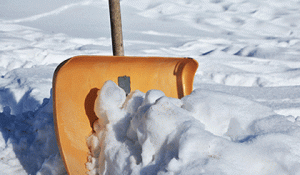
We are excited by a new water-focused business in our watershed. An article on road salt serves as a timely reminder about the effects of salt on our waterways. Also read about new state rules for an emerging contaminant, the cost of stormwater management and a recent ruling on the Gelman case that will keep HRWC involved. All in this edition of News to Us.
Pinckney native aims to help Great Lakes with Michigan-themed business Michigan Overboard is a new business taking off in our watershed. Built to give back, a significant percent of the profits made by the company will be donated to Michigan based freshwater protection organizations! Meet the owner and learn about his altruistic business model.
Our rivers and streams are getting saltier Road salt is a significant source of salt in rivers. Agriculture plays a part as well. Stream animals cannot tolerate high concentrations of salts, groundwater can become contaminated and infrastructure can corrode. It is important to remember smart ice management in the winter to help reduce the salt burden on our waterways and infrastructure.
Michigan sets limit for chemical contaminants in water The State of Michigan now has a standard for remediation of water contaminated with a family of chemicals known as PFAS. Governor Snyder’s office adopted the rule that sets a threshold for when regulators can take action against polluters. This class of chemicals has been detected in at least 14 communities in Michigan including Ann Arbor.

$160M worth of projects could address Ann Arbor stormwater issues
We often share articles here that put price tags on aging infrastructure for the state or the nation. Here, Ann Arbor has estimated the cost of improving stormwater infrastructure to address rainfall now and into the future. Ann Arbor utilizes a stormwater utility to fund some of the projects associated with managing stormwater.
Michigan Supreme Court rejects polluter’s appeal in Ann Arbor dioxane case
The state’s highest court has rejected Gelman Sciences’ appeal seeking to overturn a local judge’s rulings, which means local parties, including HRWC, can continue to fight in court for a better cleanup.



